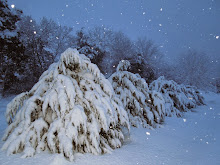Beginning with the Vietnam War the mainstream media in the United States began a new role in American life. No longer was the media content to impartially inform the American people about “the news” (the who, the what, the when, the why and the where” of events, especially political events). The elites who made up the mainstream media pretended to be neutral observers. They pretended to divorce their political views from their journalism. They acted out the role of observers even though their hearts were not in the roles. There were numerous causes for this new behavior. And there were implications and consequences far beyond the assumed objectives of journalism. Some Americans called the mainstream media the “Drive By” media for reasons clear to many Americans. Journalists loved to cover a story for a day, report, inaccurately far too often, leave incorrect impressions to say nothing of facts, and move on to the next headline gathering story with little or no regard for their public responsibility to inform the public.
The mainstream media is comprised of many parts in 2007. The establishment print media, "The New York Times", "The Washington Post", and other large city daily newspapers and the national "USA TODAY" make up one segment. Another part is the television broadcast networks; ABC, CBS, NBC, and The Public Broadcasting System (PBS) including National Public Radio (NPR) - both partially funded by federal taxes. A third segment is the weekly news magazines, "TIME", "US News and World Report", and "NEWSWEEK". Additionally, the wire services Associated Press, Reuters, and others served as another layer of elites in the field. A final segment consisted of cable television networks. The Cable News Network (CNN), MSNBC, a joint venture by NBC and Microsoft, FOXNEWS, and several other lesser known cable channels comprised this new segment of the media. Of these cable news networks only FOXNEWS was considered conservative and it was known to present both liberal and conservative views on political issues.
Many news consumers complained for years about the biased reporting of news by the elite media. As long as the establishment media controlled the news consumers had little choice in what they read or heard. With the coming of the Internet, talk radio, 24 hour cable news programming, bloggers, C-SPAN, and other news sources consumers had other options. Americans now have virtually instant access to numerous sources on a story. They waited no longer for the evening television news at 7:00 PM or for the morning paper to learn about events in the world. This was a huge change in the way news was presented and a rapid increase in the speed with which news spread around the globe.
The establishment media outlets began to lose readers and viewers at alarming rates (alarming to the Establishment) for various reasons. With more options available to news consumers and the widespread use of personal computers and the growth of Internet based news services, the news business underwent a transformation. The advance of technology and the growing distrust of the mainstream media by many Americans accounted for much of the change. Instead of providing news consumers with what they wanted, that is, accurate, unbiased, and relevant news, the liberal dominated media moved not toward the political center, but to the political left. This in turn exacerbated their predicament and drove away more consumers.
Liberal media scandals did little to assure news consumers. The New York Times, the self-proclaimed paper of record, was forced to fire one of its star journalists, Jason Blair, when it was discovered his stories were false, totally made up. The story forced some consumers to inquire about the accuracy and credibility of other Times stories. The Washington Post had a similar circumstance with journalist Janet Cooke who won celebrated journalism prizes. Only later did readers learn her stories were at best creative writing and journalism at its worst. NBC News, once a widely respected news source with reporters like Chet Huntley and David Brinkley, was caught faking a truck fuel tank explosion. NBC rigged a truck with explosives to show how the fuel tanks were unsafe. CBS News, the former home of Edward R. Morrow, had Dan Rather, CBS’s Evening News Anchor. Rather and his news crew faked a story on the Texas Air National Guard service of President Bush 43. Despite fatal flaws in the premise of their story CBS and Rather ran the story just before the 2004 national election using forged documents in a blatant attempt to damage the election chances of President Bush. And there were numerous other cases of modern liberal journalism (the Great Alar Apple Scare, the Audi 5000 Report, to name two) performing its job with an agenda to shape and control national politics (to say nothing of the Times’s Walter Duranty in the 1930s serving as a mouthpiece for Stalin).
End of Part One.
Monday, February 26, 2007
Subscribe to:
Post Comments (Atom)

No comments:
Post a Comment